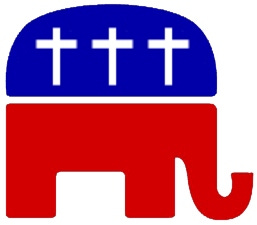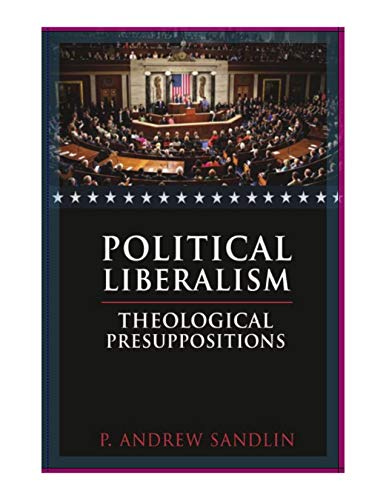Is Biblical Christianity Republican?
Biblically relevant Christians don’t get the luxury of being politically nonpartisan

Dear friends and supporters,
For nearly 16 years, conservative Christians have been confronted by the allegedly self-evident aphorism, “God is Not a Republican, or a Democrat.” It was launched, or at least popularized, by Jim Wallis and Sojourners, the principal evangelical Leftist organization of the time, and perhaps even still today. Wallis was not arguing that biblical truth should judge both parties equally, and that both are equally faulty. Rather, he plainly was trying to peel away conservative Christians from political conservatism by suggesting the Republican Party, home base for almost all politically conservative American Christians, is insufficiently Christian. Because Sojourners is wishy-washy, at best, on both abortion and same-sex “marriage,” the ministry obviously was not angling to suggest that God’s moral law should be the criterion by which to judge both political parties equally.
But the disingenuousness of Sojourners does not answer the dilemma: how must Christians assess partisan politics?
False Notions About Christians and Politics
In untangling this issue, it’s important to dispense swiftly with several false notions.
The Faith demands political engagement
First, the idea that Christians shouldn’t be involved in politics. This is the easiest mistaken idea to refute. If Jesus is Lord of all things, and he is, he is certainly Lord of politics. When we pray in the Lord’s Prayer, “Thy kingdom come, Thy will be done in earth, as it is in heaven,” we implicitly recognize that the will of God does not exclude politics.
This does not suggest that any earthly politics is equivalent to Christ’s kingdom. It is to recognize, however, that the kingly will of God infallibly executed in heaven should be approximately executed on earth, and in earthly politics. To assert piously that the will of God should be accomplished in the family and church but not in the state is to talk theological schizophrenia.
Political engagement demands partisan politics
Second, we should jettison the idea that because the word of God stands above and judges all politics and political parties (it emphatically does), partisan politics is unimportant or unnecessary. The Bible knows nothing about political parties, certainly not as they appear today in constitutional republics, but the Bible does expect us to be faithful to the Lord in the totality of our lives (1 Cor. 10:31–33), and to be attentive to the historical situation in which he has placed us (1 Chr. 12:32; Phil. 4:11–13).
In the United States, this means Christians must account for and not circumvent political parties. Our country has long embraced a two-party system (third parties inevitably dissolve because their concerns are absorbed by one or both of the two major parties). To assert, “I will be a politically faithful Christian in the United States, but I want nothing to do with political parties” is to say that you are willing not to be a faithful political Christian in the United States. Intentional irrelevance is not a strategy of biblical faithfulness.
The two parties are not equally objectionable
Third, the suggestion that the Republican and Democrat parties are equally objectionable to biblical Christianity is demonstrably false. In my response to Pastor Timothy Keller on this very issue, I wrote in “Is God a Republican or Democrat?” the following:
[T]he fact is that a number of “historical Christian positions on social issues” do “fit into contemporary political alignments.” The GOP and the historical Christian position define marriage as between one man and one woman. The Democrats do not. The GOP and the historical Christian position see unborn children as persons entitled to legal protection from murder. The Democrats do not. The GOP and the historical Christian position recognize that economic liberty (free markets) is a moral imperative that, not coincidentally, erases poverty. The Democrats do not. The GOP and the historical Christian position embrace the rule of law as a cornerstone of the Founding philosophy of classical liberalism, itself shaped by Protestant Christianity. The Democrats do not. There is no moral equivalence between the parties. The GOP is far from perfect, but it is also usually not far from the “historical Christian positions on social issues.” The Democrats, on the other hand, aren’t even close. And don’t want to be.
The pre-70s Democratic Party was misguided economically and racially (the Dixiecrat-style Democrats were the last national political racist holdouts) but, in general on social issues, the party was sound. If John F. Kennedy were alive today, and held the positions he embraced during his presidency, he could only be a Republican. Pro-life Pennsylvania Democrat governor Bob Casey Sr. would be hounded out of today’s Democrat Party.
(continued below)

This booklet shows that the grand political vision of our time, liberalism, is based on apostate theological presuppositions. Christians must overthrow those religious convictions to finally destroy political liberalism.
Order the book here.
(continued)
Two Very Different Parties
The Democrats’ burgeoning apostasy
Over the last 40 years, the Democrat Party has become increasingly Leftist, honeycombed with Cultural Marxism, in fact, so devoted to the Sexual Revolution that Joe Biden today believes minor children should legally be permitted to determine their “gender,” i.e., get sex-change surgery. This is nothing short of criminal child abuse, and no Democrat as late as four years ago would have argued for it.
By contrast, the Republican Party is formally conservative. I remember the country club Republicans of the 70’s like Richard Nixon, Gerald Ford, and Nelson Rockefeller. They either were pro-abortion or squishy on the issue. None were strongly in favor of free markets.
The Republicans’ comparative faithfulness
By contrast, today’s Republican Party is boldly pro-life. While they have wrongly capitulated to economic protectionism during the Trump years, they tend to hold generally firm domestic free-market views. They are less aggressively anti-gay “marriage” than they should be, but they are much more pro-family than the Democrat Party, which in effect is anti-family, and there’s not even a comparison between the parties on other social issues.
God’s law in politics
While not all (or even most) Christians are called to be political activists, all are called to be faithful to Jesus Christ in every area of life, and in constitutional republics like the United States that includes politics. And to act as Christians in politics is to act according to the word of God, and to do that, we must work to conform politics to God’s moral law found in the Bible.
If you read the first half of the book of Isaiah, you’ll notice something quite interesting if you’re paying close attention. In chapters 1 through 12 God’s Spirit through his prophet indicts the Jews for their idolatry and apostasy from God’s covenant law. But almost seamlessly in chapter 13 the prophet reprimands and threatens the nations surrounding Israel for many of the same sins in deviation from God’s law. Though the pagan Gentile nations were not the specific recipients of the Mosaic law, they still stand under its authority.
The apostle Paul declares the same thing in Romans 3:19 — “Now we know that whatever the law says, it says to those who are under the law, that every mouth may be stopped, and all the world may become guilty before God.” God’s law, including, but not only, in politics, applies to all people, everywhere, at all times.
Politics 2020
Now back to U. S. partisan politics in 2020. We can’t be politically faithful if we avoid the institutional vehicles like parties open to Christian influence. Clearly that is presently the Republican Party. This party is not an unvarnished reflection of adherence to God’s moral law, but it is patently open to godly influence and, in fact, has been so influenced.
To work for an effective Biblical politics is necessarily to support to some degree and, in many cases, to work within, the Republican Party. This party by and large stands for the dignity of human life, the integrity of the family, the inviolability of property, religious and political and economic liberty, and an implicit recognition of the Triune God. At least it stands for these truths to some degree, while the Democrat Party opposes them.
Of course, this is not to say that all or even most Republicans are Christians, that those who claim to be Christians in the party are not hypocrites, or that the Republican Party is not in dire need of improvement. Nor is it to commit to Donald Trump, certainly not without reservation.
But the decision to be biblically obedient in today’s political context means we don’t have the luxury of standing above partisan commitments, and it obviously means that commitment cannot be to the death- and destruction-designed Democratic Party.
Conclusion
Christians need not be registered Republicans, or vote for every Republican in every race. But they must not assume that avoiding partisan politics entirely is an option open to Christians dedicated to a relevant application of the Faith in culture.
In this way, and in this way alone, biblical Christians in the United States must be Republican.
See also “Christians Must Be Conservative, and Conservatives Must Be Christians.”
Will you consider a tax-deductible donation to CCL via PayPal or Venmo? God uses you to keep us going — and expanding.
Personal
Because the CCL symposium is next Saturday, November 7, and I’ll be so busy, I’m not planning this CultureChange e-newsletter for next week.
Will you pray that this will be our greatest symposium in 21 years, with no impediments due to onerous COVID restrictions and no hostility from the Leftist locals? I greatly value your effectual prayer.
For the King,

More great stuff:
The Center for Cultural Leadership site is here.
My Amazon author page (print and digital) is here.
You can find my sermons and lectures at my YouTube channel.
Sign up to get my blog updates here.
Here’s my Twitter feed.
Here’s my Parler feed.
If you want to get the free exclusive hard copy publication Christian Culture, please send me a Facebook private message.
The CCL phone number is 831-420-7230.
The mailing address is:
Center for Cultural Leadership
P.O Box 100
Coulterville, CA 95311
List of Coronavirus-related posts and podcasts:
“What the COVID-19 Drama Has Revealed About Our Institutional Character”
COVID-19 and Legality: An Interview with Jeffery J. Ventrella
COVID-19 and Economics: An Interview with David L. Bahnsen
COVID-19 and Theology: An Interview with Brian G. Mattson
“COVID-19 and Our Crisis of Liberty”



